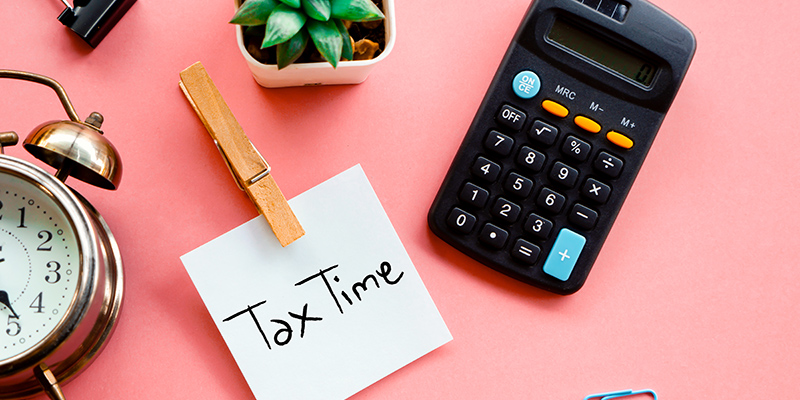Tax season is always a huge pain point for many property managers and landlords. And this is understandable due to the complex nature of taxes. But, there are some tax tips for property managers that will greatly ease the process.
The Best Tax Tips for Property Managers
Managing a rental property is a great way to earn money or supplement your income. But, it does come with its fair share of hurdles. For example, landlords and property managers must screen tenants, prepare lease agreements, conduct regular property inspections, collect rent, and communicate with tenants. Beyond that, there are certain laws to keep up with and legal requirements to complete.
Perhaps one of the most confusing aspects of managing a rental property is tax preparation and filing. Once a year, landlords and property managers must scramble to gather the necessary documents, make computations, and then file and pay taxes to avoid penalties. The entire endeavor can be exhausting and tedious enough to make some rental property owners want to sell.
Fortunately, there are some things you can do to make this time of the year much more bearable. Here are the best tax season tips for property managers.
1. Store Data in a Single Place
The first thing you need to do is to allocate a single repository for all of your financial records. With the introduction of many software and cloud-based applications, you can keep all of your data in one place for the price of an affordable subscription.
A cloud-based system poses several benefits. For one thing, you can automatically store and update all of your files 24/7, provided you have an Internet connection. Then, come tax season, you can quickly access all the information you need. This will end up saving you a lot of time and increase your efficiency at the same time.
When deciding on which system to use, remember to consider storage size. If possible, go with a plan that gives you unlimited storage capacity. This is best for property managers who handle multiple clients or landlords who handle several different rental properties. The best part is that you won’t have to worry much about security. Most cloud-based systems have excellent encryption standards and backup routines that keep your data safe and sound.
For property managers, in particular, communication is absolutely paramount. If you opt for property management software, go with one that offers built-in communication tools. These will allow you to share notices and payments as well as send reports and documents in real-time.
2. Keep Your Files Organized
 Getting and staying organized can significantly streamline your tax processes. Make sure to set up a chart of accounts to make accounting and bookkeeping a breeze. Most property management software already comes equipped with account integration, so you can effectively run your business.
Getting and staying organized can significantly streamline your tax processes. Make sure to set up a chart of accounts to make accounting and bookkeeping a breeze. Most property management software already comes equipped with account integration, so you can effectively run your business.
You should also remember to reconcile your bank accounts for maximum organization. Check your balance at least three times to ensure it’s accurate. If there are gaps, isolate them and trace them back. This is how you can identify any incidences of theft or other fraudulent actions. On the other hand, some of these discrepancies can occur as a result of typos, missing transactions, or duplicate entries.
Finally, don’t forget about year-end reports. Your financial statements will help support your 1099 declarations and figures. If you don’t know how to make these reports, you can rely on an accountant or property management software.
3. Know Your Deductions
This is one of those tax tips for managing rental property that you can’t ignore. Deductions allow you to lower your tax obligation, so make sure you know which ones apply to you. Property management fees, for instance, are usually tax deductible.
Other than that, here are the most common expenses that you can deduct from your tax bill:
- Maintenance and cleaning
- Repairs
- Utilities
- Depreciation
- Equipment rentals
- Pest control
- Insurance premiums
- Advertising
- Local property taxes
- Homeowners association dues
- Condo fees
- Travel expenses (if the primary purpose of the travel is related to your rental property)
- Trash removal fees
- Interest expenses
4. Claim Your Home Office
While it’s not a traditional business, owning and managing a rental property is still considered such. If you don’t have a regular office, you likely do work from home. That means you can claim your home office to reduce your tax bill.
If you have a room or space in your house that you use exclusively for your rental activities, then you can claim a part of your house expenses as a deductible. To calculate this, you can either use your home office’s square footage divided by the whole house’s square footage.
Keep in mind that some new laws in your state may affect this, too. For example, the new Florida House Bill 403, which passed into law in 2021, made changes to the way the state treats home-based businesses. It specifies that home-based businesses are subject to certain business taxes.
5. Take Advantage of Software With Analytics
 This is one of the tax tips for landlords that often get overlooked. Analytics may seem like just a numbers game to some, but it can help you during tax season.
This is one of the tax tips for landlords that often get overlooked. Analytics may seem like just a numbers game to some, but it can help you during tax season.
With analytics, you can understand your data in a more efficient way. It allows you to collate all pertinent information and use that for reporting. Analytics also gives you a way to ensure consistency in your finances. You can identify your accounts receivables and accounts payables with a single glance.
This is one of the perks of investing in property management software. Nothing compares to the power of a computer. Many programs are smart enough to automatically detect any financial anomalies in your data. This will significantly reduce mistakes and save time spent on scrubbing or updating your records.
6. Understand Your 1099s
It is essential for property managers and landlords to understand the forms they have to file:
- Vendor-NEC 1099
- 1099 correction file
- 1096 for 1099s filed by mail
- 1099-MISC copy A and B
- 1099-K (for the company)
You can send your 1099s either by traditional mail or electronically. The beauty of e-filing is that you don’t need to order physical forms of 1099-NCE and 1099-MISC anymore, so it’s definitely an option you should consider.
7. Don’t Be Afraid to Ask for Help
While these tax tips for property managers can go a long way, you should never shy away from professional help. Landlords or rental property owners, in particular, can hire a property management company or accountant to assist with their taxes. There are also a number of property management software that comes with automated tax features and reporting capabilities.
The Final Word
Tax season doesn’t have to be insufferable. As long as you follow these tax tips for property managers and allow yourself enough lead time, you will quickly find that preparing and filing your taxes can be easy.
RELATED ARTICLES:
- Tax On Rental Income: Will Property Owners Pay Taxes?
- Property Manager Job Description: What Does A Property Manager Do?
- What Landlords Should Know When Renting Out To Military Tenants




 Company
Company